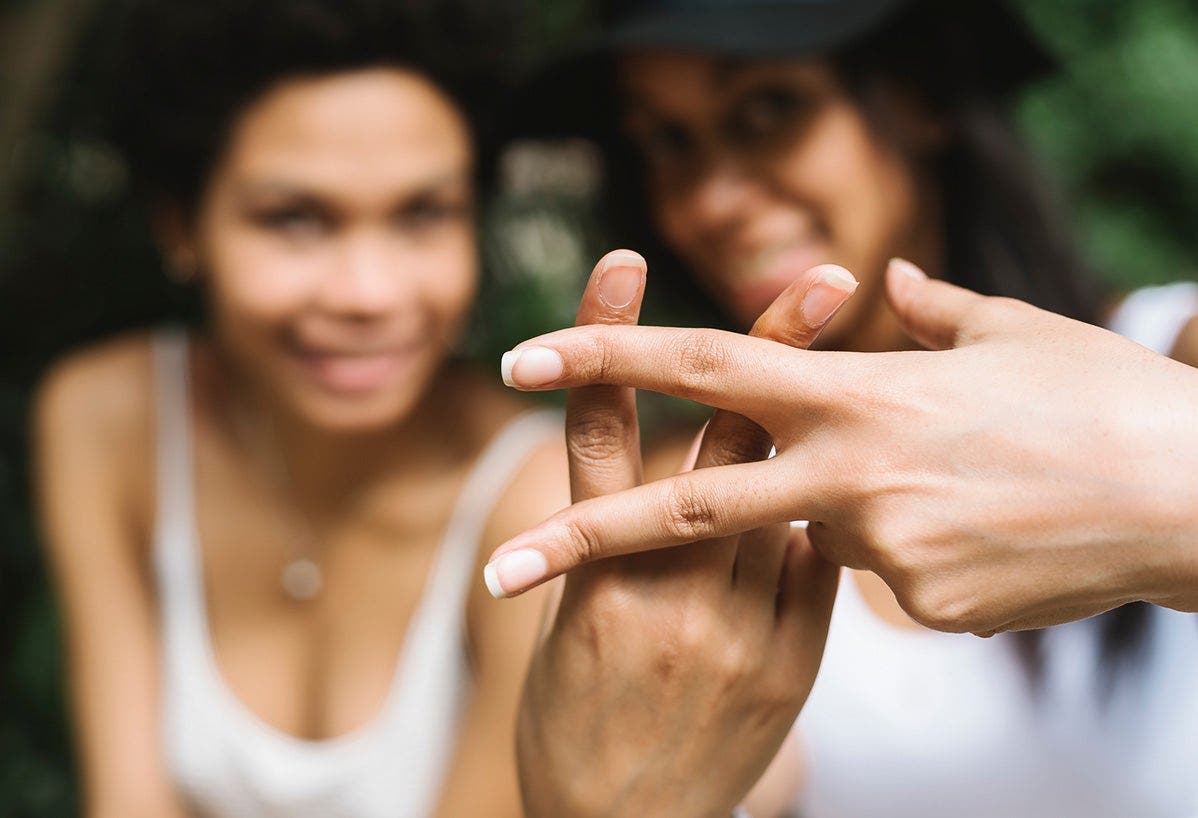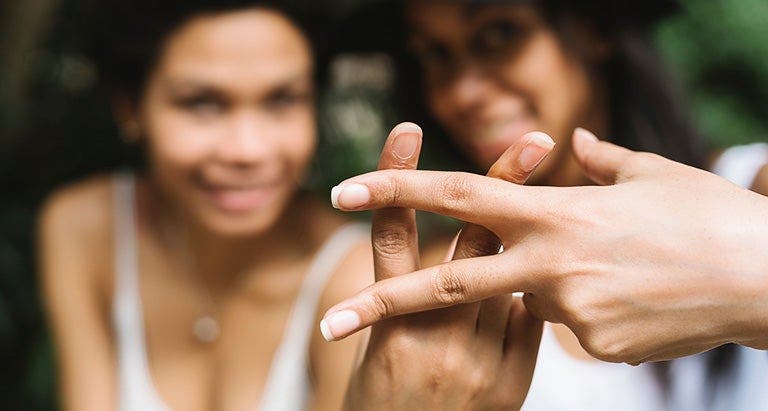Selfie-Love


Ever told yourself that you don’t care what other people think? It’s a nice thought—but humans can be very sensitive to opinions. That’s what happens when a species spends thousands of years developing traits that help its members connect with one another. “After food and shelter, social connection is our greatest need from birth to death,” says Emma Seppala, PhD, codirector of the Yale College Emotional Intelligence Project at Yale University and author of The Happiness Track.
Compliments, approval, and encouragement (the virtual kind counts, too) are all considered positive feedback, she says, and they’re processed in our ventral striatum—the area of the brain that lights up when we receive rewards, such as food and money. But lately some of us seem to have evolved from social creatures into social media creatures. We may still desire connection, but these days we could be as likely to give a “like” as we are a hug. Social media remains one of the primary ways we stay connected in our wired-yet-wireless world, and it could potentially help boost your physical and mental well-being—but only if you know how to use it to your advantage. Here’s how.
1. Curate a #compassionate feed.
Helping others has the potential to make us happier, Seppala says. Example: One 2016 study in the British Medical Journal found that volunteering appeared to be associated with a boost in mental well-being, particularly for middleaged and older adults. “Follow pages that foster compassion or people who post uplifting messages,” she suggests. “Then make it a point to send friends nice comments.” Your positivity could be contagious.
RELATED: The Give and Take of Being a Volunteer
2. Join an active group.
Being in a network of physically active people might reinforce the idea that exercise is a rewarding, positive behavior—and that, in turn, may encourage you to work out more, says Andrew Lepp, PhD, an associate professor and new media behavioral researcher at Kent State University. Plus, being open about trying something new might lead to exciting relationships and opportunities to get fit, he says.
RELATED: Start Your Own Workout Squad
3. Say hi to old friends.
While meeting new people might be great, maintaining existing friendships may also help us protect our psychological health, Seppala says. “The nice thing about long-term relationships is that you don’t have to start from scratch,” she says. “You have a greater sense of kinship from all the years spent together.”
RELATED: How Childhood Friends Unlock Memories
4. Talk about yourself (within reason).
From a neurological perspective, sharing information about yourself with someone else may be rewarding for you, says Natalie Bazarova, PhD, a researcher of social media and associate professor of communication at Cornell University. And posting comments—i.e., engaging with others—may inspire more joy than simply scrolling through your feed, Seppala says. Still, she cautions against going overboard. “If you don’t get the responses you want, it could feed into your insecurity.”
RELATED: The Connection Between Friends and Weight
5. Know when to stop checking.
Make time for some IRL meet-ups with friends, too. “It’s ideal when you can use social media in a way that complements face-to-face interactions,” Lepp says. “When Facebook, Twitter, or Instagram becomes a substitute for in-person relationships, and the bulk of your social interactions move to the virtual world, that’s when people may become lonely or depressed.”
RELATED: Can Screens Make You Sad?
